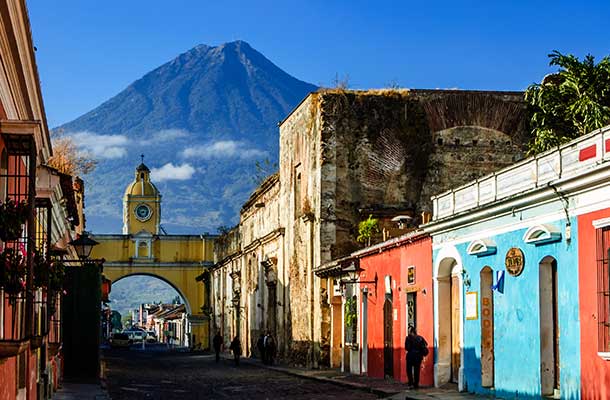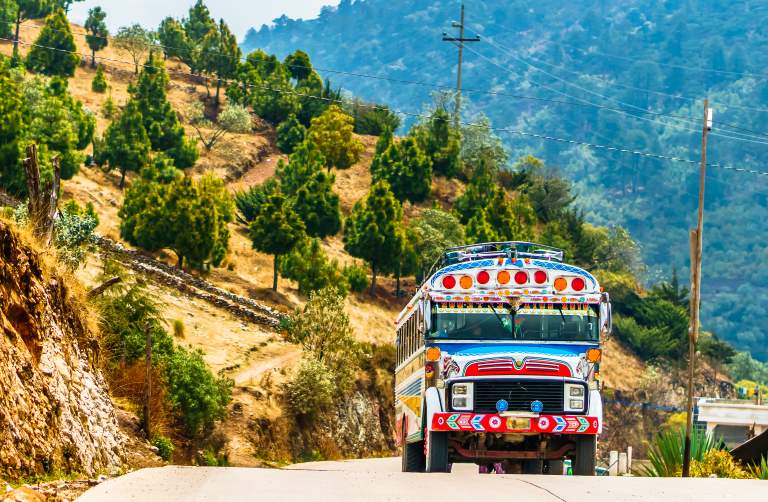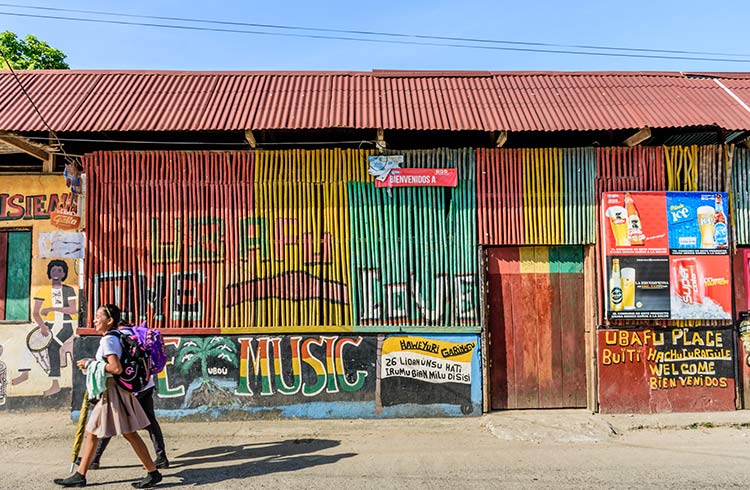Is Guatemala Safe? 4 Essential Travel Safety Tips on Crime
Crime does happen in Guatemala, but it's no reason to stop you from traveling to this amazing Central American country. Here's what you need to know before you go.
 Photo © iStock/Lucy Brown - loca4motion
Photo © iStock/Lucy Brown - loca4motion
It's no secret that Guatemala has a high rate of crime – mostly due to corruption in the government and political instability as a result.
But, just how dangerous is Guatemala for travelers, and is it safe?
While crimes do and can happen to travelers, there's no cause for alarm, just keep these handy tips in mind before you go to stay safe in Guatemala.
1. Pickpocketing in Guatemala
Markets, public transport, and public processions all bring crowds, and with crowds come easy targets for skilled pickpockets in the area. One, in particular, is Holy Week in Antigua, when pickpocketing is rife.
The famous markets of Chichicastenango are also notorious for theft, with travelers reporting having several pockets razored discreetly until the wallet pocket was discovered. Another traveler recalled how he was pickpocketed at the Solola markets, even with his pockets buttoned shut.
Thieves will take advantage of any time your attention is diverted so they can strike. The US Embassy in Guatemala reports US tourists have been pickpocketed exiting the Aurora International Airport, while riding on buses from Guatemala City to Antigua, and while out shopping and sightseeing.
The best way to avoid becoming a victim? Keep your belongings close, or don't carry expensive items with you when you're out. It's also best to avoid showing any wealth, so dress down to blend in, leave the jewelry and expensive watch at home.
Avoid traveling around night which can make you an easy target for criminals especially in major cities and towns.
2. ATM and credit card crime in Guatemala
Bankcard scamming and account fishing is a commonplace crime in Guatemala. After using ATMs in Antigua's Central Plaza, travelers have reported seeing fraudulent charges on their accounts. These scams have also occurred in ATMs in Antigua grocery stores.
Credit card cloning is frequently reported in Guatemala City. The best way to avoid this is to use cash and carry only as much of the local currency as you think you'll need for the day. Leave valuables back in your hostel or hotel locked in the safe (if there is one). It's also a good idea to let your bank know when you will be in the country in case you get some suss transactions once you leave or arrive home.
3. Car crime in Guatemala
Cars may seem like a secure place to store your valuables, but Guatemala has its fair share of car break-ins. A traveler reported having their car broken into while parked at the gas station. Inside was her computer, wallet and credit cards.
Incidents like these are especially popular in Guatemala City, but caution should be taken whenever important items are left unattended in a vehicle. Always keep valuables out of sight or better still take them with you.
4. Armed robbery in Guatemala
Many travelers will visit Guatemala without any trouble involving theft and robbery, but it's wise to note where armed robbery sometimes does occur. This could involve the threat of weapons, such as guns, knives and even grenades. Avoid the known crime hotspots in Guatemala City: Zones 1, 3, 6, 18 and 21.
Several tourists have reported being robbed at gunpoint while climbing the volcano at Volcan de Agua and also on walking tracks throughout the country.
Tourist buses and shuttle buses are occasionally robbed at gunpoint. These incidents would most likely occur the vehicle was in the wrong place at the wrong time or that the thieves and driver were colluding. Typically, such an incident involves the driver of a private shuttle going off-track or traveling in a remote location, where several masked men rob travelers of their belongings. An incident just like this occurred in 2017, where a shuttle bus traveling from Antigua, Guatemala to Leon, Nicaragua was hijacked by a group of armed thieves, and several passengers held at gunpoint.
By exercising some common sense you can minimize your risk of being robbed by doing the following:
- Talk to locals; they will know where the dodgy spots are or if an area/street is a bit of a crime hotspot
- Avoid traveling at night on any public transport. Always try to leave and arrive during daylight hours
- Taking first-class bus services when traveling between cities
- Use licensed radio-dispatched taxis, such as Taxi Amarillo and Taxi Blanco y Azul
- Don't flash jewelry, cash or cards around
- Use ATMs inside hotels or banks rather than on the street
- It's also handy to keep a fake wallet with a small amount of cash that you will be happy to hand over if robbed.
Before you buy a travel insurance policy, check your government travel warnings and health advice – there may be no travel insurance cover for locations with a government travel ban or health advice against travel.
Related articles
Simple and flexible travel insurance
You can buy at home or while traveling, and claim online from anywhere in the world. With 150+ adventure activities covered and 24/7 emergency assistance.
Get a quote

No Comments